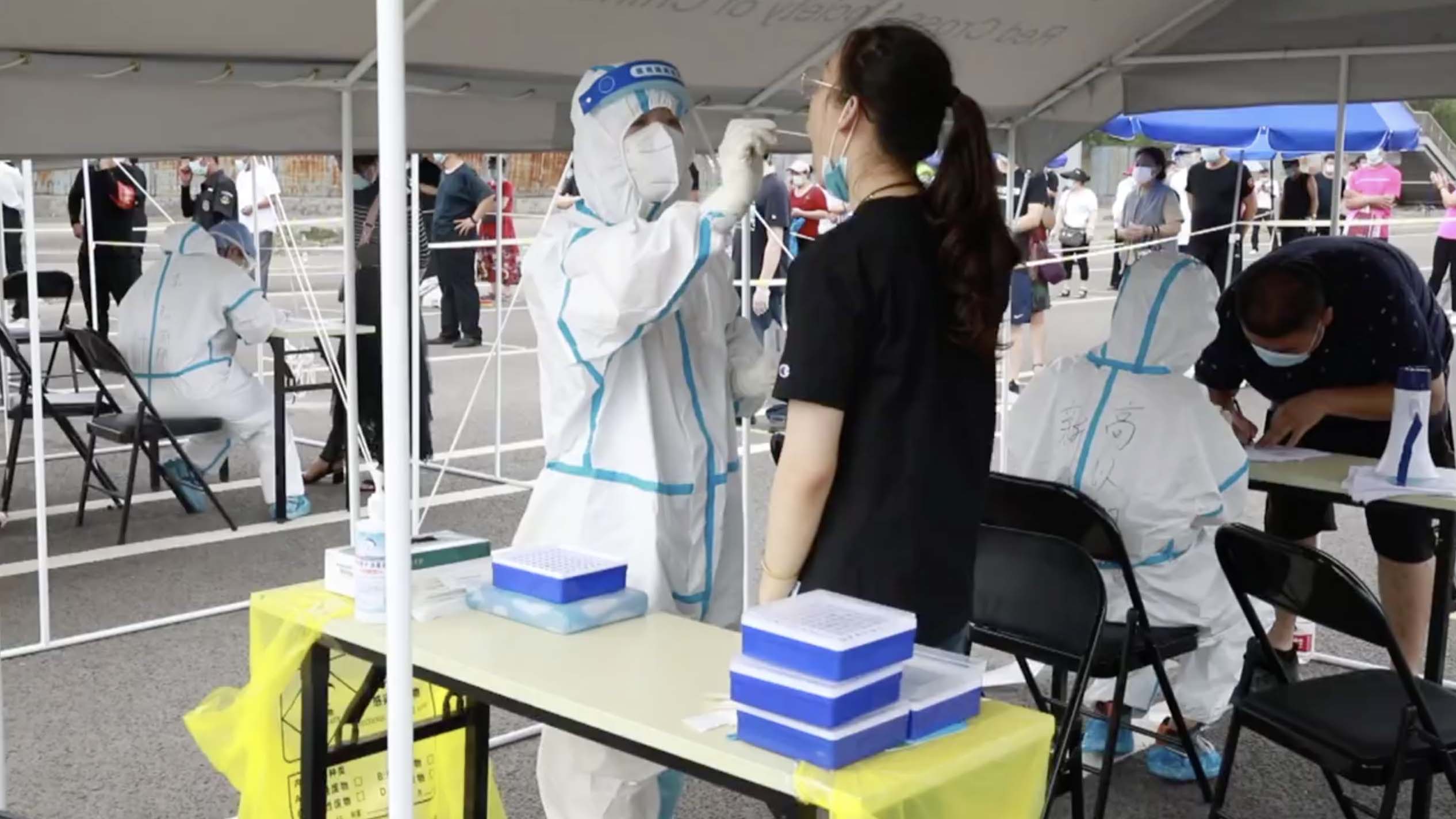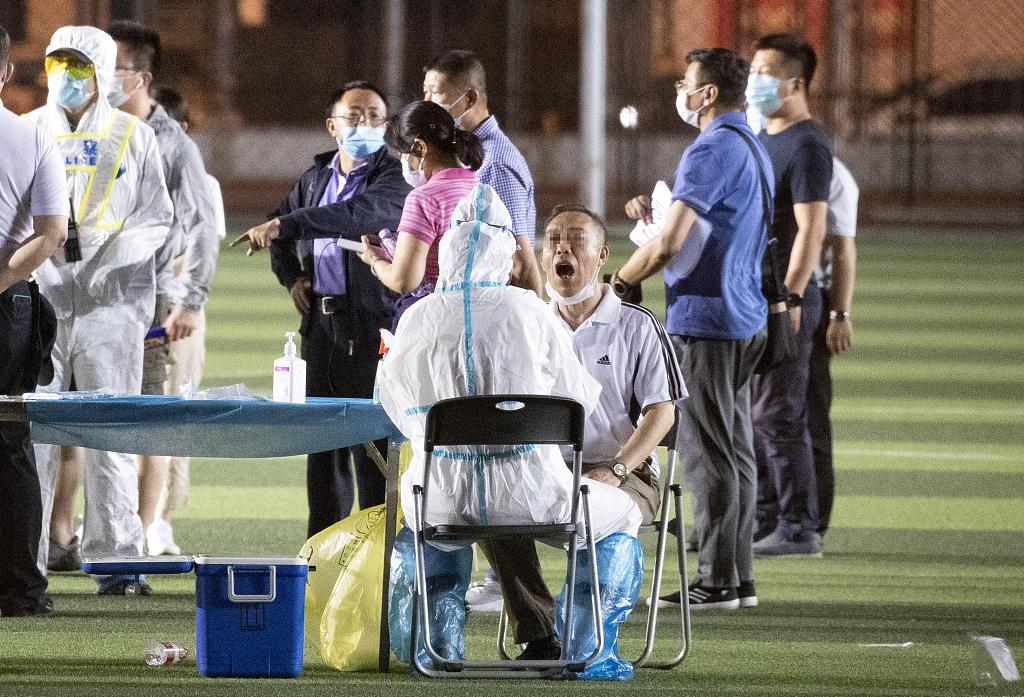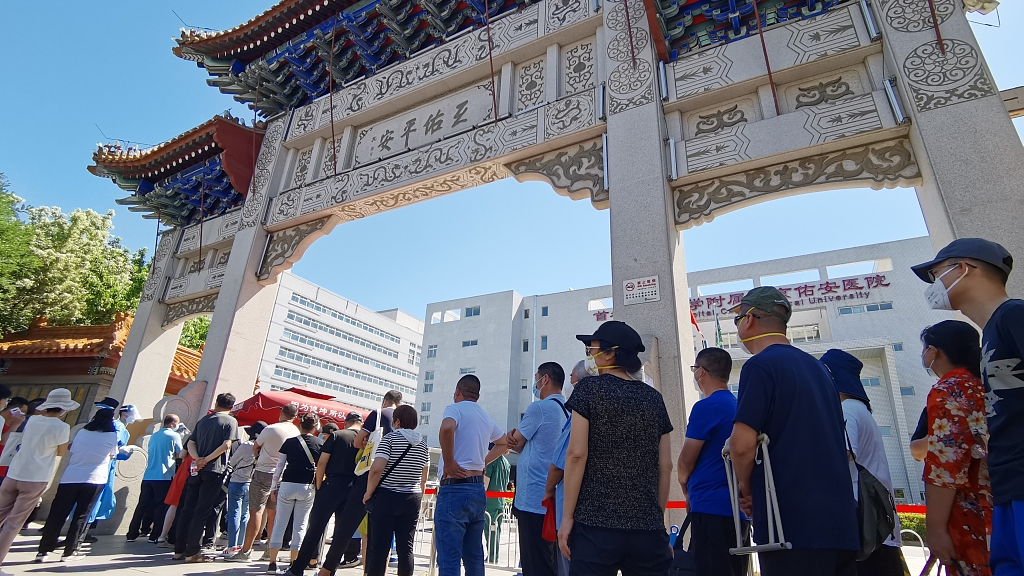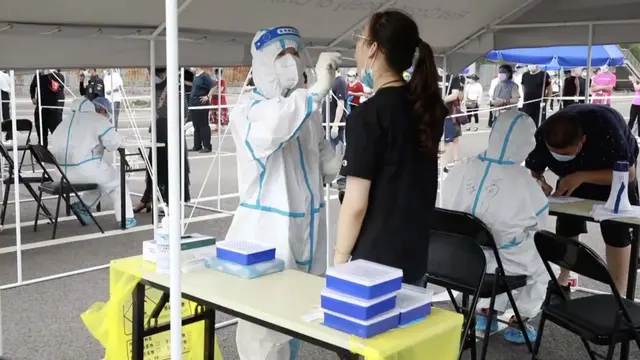
The resurgence of COVID-19 in Beijing has certainly caught China and the world off guard. Since June 11, there have been more than 100 coronavirus cases in China's capital. And the number is still increasing. As the country has largely been returning to normal, there's a feeling among the public that the new cases will dent the momentum. The Dow swung by more than 1,000 points on June 15 in part because these new cases shocked the world market and shook investor's projections.
How's the situation in Beijing? Could Beijing become the new version of Wuhan at the beginning of the pandemic in late January?
It must be acknowledged that this local outbreak is happening against a complicated backdrop. Beijing was one of the last cities in China to ease its disease control and prevention measures. It wasn't until early June that the last travel restrictions were lifted, and the city began to operate in full. Vehicle restrictions were implemented again, crowds reappeared in subways instead of just scattered passengers, and bars have become buzzing with people taking a breather after being forced to stay home for months. This means that the outbreak has happened at an intense period of movement and interaction, raising the potential of widespread transmission.
On top of that, the epicenter of this new outbreak – Xinfadi market – is not just a place for casual grocery shopping. It is a behemoth wholesale market for agricultural products in Asia; it has the highest sales volume in the region and it's a crucial supplier of Beijing citizens' every day food supply and important in ensuring the food safety of the city. Each day, 18,000 tons of vegetables and 20,000 tons of fruits are traded here. And it is said that hundreds of thousands of people troop through here each day for groceries or business needs. A virus outbreak in such a place threatens both the public health and the food safety of China's capital.
But China has had months of experience in fighting the pandemic, and senior Chinese officials know full-well Xinfadi's importance. When SARS hit in 2003, then-acting mayor Wang Qishan, China's current vice president, went to Xinfadi to solve problems of shortages and price gouging. This time, the city has taken swift action in responding.

Xinfadi wholesale market, Beijing, China. /VCG
Measures taken this time have been highly precise. Limiting the number of hospitals that treat coronavirus patients minimizes the exposure of ordinary patients and medical staff to the virus. Ditan Hospital, with high expertise in dealing with infectious diseases, took up the responsibility of taking in all the new COVID-19 patients.
In 2003, it was at the frontline of the fight against SARS. According to the hospital's data, it took in 329 SARS patients, over half of whom were critical patients. Wu Guoan, vice president of Ditan Hospital, said in an interview on June 15 that the hospital has opened four additional wings to specifically treat these new COVID-19 infections. Within a weekend, the hospital transformed itself for its new mission.
Aware that the increase in patients could easily lead to understaffing, other hospitals sprung into action and sent personnel and resource assistance to Ditan Hospital. So far, 19 hospitals have dispatched assistance teams.
To ensure that that all infected patients would get treatment and be quarantined off, Beijing authorities ordered that all fever clinics in the city must not turn away patients or stop receiving patients. And they must test each incoming patient for the coronavirus. The municipal government also declared that anyone who had been to Xinfadi market since May 30 could dial the 120 emergency line and be transported in a specialized car to hospitals either for treatment or testing.
On a larger scale, the government has taken a targeted approach to managing transmission among the general public. Instead of raising the health alert of the whole city at once, it started with specific streets and areas that have either seen new COVID-19 patients or have high risk of exposure. The eased tracing measures have been put back again with residential compounds starting to take temperatures and recording traffic 24/7.

Taking nucleic acid samples at a stadium in Beijing, China, June 14, 2020. /VCG
Widespread testing was conducted almost instantaneously. Guang'an Stadium in Beijing's Xicheng District was transformed into a large testing center for citizens. Testing services were provided from early morning to late night. According to a report by
The People's Daily
subsidiary Health Times
, a citizen gave a sample at around 9:30 p.m. and received his results merely 30 minutes after midnight. Across the city, nearly 100,000 workers were mobilized to test everyone who'd been to Xinfadi. So far, 200,000 have been tested.
On the scientific front, researchers have already made immense progress in studying the virus strain. Wu Zunyou, chief epidemiologist at the Chinese Center for Disease Control and Prevention (CDC), said in an interview on June 16 that the gene sequence of the virus that's causing this new outbreak has already been studied. The strain originated from Europe, but whether it was transmitted directly from Europe remains unclear.
Given that Beijing has not seen a case in nearly 60 days, it is most likely that the virus was either brought in by objects carrying the virus or by infected people coming into the city.
Despite the progress and fast reaction, there's still an anxiety among the population because the epicenter is the so-called "food basket" of Beijing, there is a real worry over grocery prices and safety in a city that's home to more than 20 million people.
The municipal government has already conducted sample testing in the city's food commodities, with none being coronavirus positive. Companies like JD have prioritized shipments and supplies to Beijing citizens. Supermarkets like Hualian and Carrefour have taken individual action to either ship more food into Beijing stores or reorganize their deliveries to heavily focus on Beijing to ensure price stability.
There's also anxiety that the quarantine way of life may return. The government's "precision-strike" countermeasures are designed to ensure the continuation of the the city and the country returning to normal. Also, as the World Health Organization has warned, the virus might very well be with us for a long time. Individual cases popping up every once in a while could become the new normal.

People line up at the gate of Beijing You'an Hospital, a few kilometers from Xinfadi wholesale market, for nucleic acid tests in Beijing, China, June 14, 2020. /VCG
Societies cannot shut down again because of these individual cases. The Beijing municipal government's decision to take streets and specifically defined areas as the basis for raising the alert is to leave ordinary citizens with as much room to maneuver as possible, ensuring their daily lives and work wouldn't be affected by these new cases. In a larger sense, ensuring the overwhelming majority of the capital functions will make sure that the country remains on course to a full recovery from the pandemic.
We may have been surprised by the new outbreak, but we are much better prepared for it than we would have been at the start of the year. Precision control is replacing massive-scale countermeasures. The government has the foundation and the ability to use big data to target specific groups for testing and monitoring, and the process of pandemic control has been honed by the months of acting on it. Citizens, as during the pandemic, need to continue to be alert about their own health and report to authorities quickly if they fall ill and also get tested for the virus.
Sporadic cases might appear at any time. If we never get rid of this virus, then we must learn to live with it. The government and the society already have ample experience. Medical procedures have already become routine. We may have to make certain compromises in our daily lives to ensure our own safety but we can't put everything on hold for months on end because of the virus again.
(If you want to contribute and have specific expertise, please contact us at [email protected].)
 简体中文
简体中文

